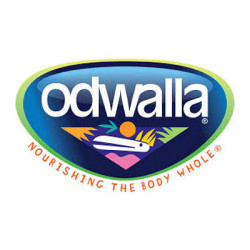Top Class Actions’s website and social media posts use affiliate links. If you make a purchase using such links, we may receive a commission, but it will not result in any additional charges to you. Please review our Affiliate Link Disclosure for more information.

U.S. District Judge Yvonne Gonzalez Rogers rejected Odwalla’s argument that the plaintiff is trying to hold it to legal requirements that were not in effect at the time of the labeling in question.
The judge also concluded a denial of injunctive relief would be premature without further development of the evidentiary record.
Plaintiff Robin Reese started this Odwalla class action lawsuit in 2014. She argued that the ingredient in question is not materially different from sugar, and that identifying it as “evaporated cane juice” gives a false impression of greater nutritional value.
In Odwalla’s motion for dismissal, the company challenged Reese’s claims under California’s Sherman Law, which incorporates food labeling requirements from federal FDA regulations.
Odwalla argued that the Sherman Law incorporates only regulations that were binding at the time of the labeling in question. It claimed Reese was trying to hold the company to a non-binding draft guidance issued by the FDA in 2009.
But Judge Rogers agreed with Reese’s argument that the 2009 guidance was a clarification of existing laws and regulations that restrict use of the term “evaporated cane juice” in food labeling. Those rules were indeed in effect and binding at the time of the labeling at issue.
Similarly, Odwalla argued that because Reese’s claims were premised on federal guidance that didn’t become final until 2016, those claims are preempted by federal law.
But as with the company’s other argument, Judge Rogers found that Reese’s claims are based on other federal rules besides the FDA guidance, rules that were binding and in effect at the time of the labeling.
On Reese’s request for an injunction, Odwalla argued that there was no basis for such relief because the company has already stopped the labeling in question. In 2015, Odwalla apparently replaced the term “evaporated cane juice” with “cane sugar” on its product labels.
Reese countered that Odwalla must do more than just stop the challenged behavior. To avoid an injunction, the company must also demonstrate that it will not resume such labeling in the future, Reese argued. Judge Rogers agreed, concluding that a final decision on injunctive relief would require more development of the factual record.
The FDA guidance mentioned here caused a two-year-long pause in this Odwalla class action lawsuit.
In 2014, Judge Rogers stayed the action, waiting for the FDA to issue a final guidance on the subject of whether and how the use of the term “evaporated cane juice” could be false or misleading. The judge lifted the stay once the FDA released its final guidance in May 2016.
Reese is represented by Ben F. Pierce Gore of Pratt & Associates, and Keith M. Fleischman and Joshua D. Glatter of the Fleischman Law Firm.
The Odwalla “Evaporated Cane Juice” Class Action Lawsuit is Reese v. Odwalla Inc., et al., Case No. 4:13-cv-00947, in the U.S. District Court for the Northern District of California.
ATTORNEY ADVERTISING
Top Class Actions is a Proud Member of the American Bar Association
LEGAL INFORMATION IS NOT LEGAL ADVICE
Top Class Actions Legal Statement
©2008 – 2024 Top Class Actions® LLC
Various Trademarks held by their respective owners
This website is not intended for viewing or usage by European Union citizens.














